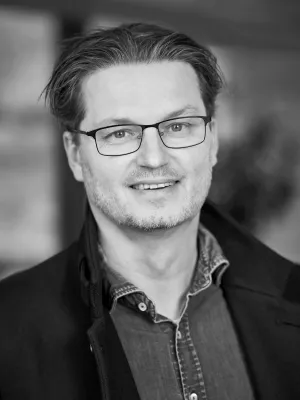
Roger Hildingsson
Researcher

Carbon Ruins: Engaging with Post-Fossil Transitions through Participatory World-Building
Author
Summary, in English
While many pathways to post-fossil futures have been articulated, most fail to engage people in imagining themselves as being part of those futures and involved in the transition. Following recent calls for more immersive experiences, the 2019 initiative “Carbon Ruins—An Exhibition of the Fossil Era” (Carbon Ruins) is a performance set around a historical museum from the future, which uses recognisable, culturally powerful physical objects to bridge the gap between abstract scenarios and everyday experiences. Through its physical presence and extensive media coverage, Carbon Ruins struck a chord with scientists, activists, creative professionals, policy makers, civil society organisations, and the general public. Like other imaginary worlds, Carbon Ruins is not finished. It is an open-ended process of narrating, imagining, and representing (the transition to) a post-fossil future. In this article we reflect upon Carbon Ruins as a participatory form of world-building that allows for new ways of knowing, and new ways of being, in relation to post-fossil transitions. We discern three different kinds of authorship that were taken on by participants: as originators, dwellers, and explorers. While the originator makes the future world a recognisable place, the dweller can engage active hope in place of a passive sense of urgency, and the explorer can transform resignation into commitment, with a fresh determination to leave the fossil era behind. Situating Carbon Ruins within a critical political tradition, we find post-fossil world-building to be a form of critique that destabilises accustomed ways of thinking and opens up new fields of experience that allows things to be done differently.
Department/s
- Department of Political Science
- BECC: Biodiversity and Ecosystem services in a Changing Climate
- Environmental and Energy Systems Studies
Publishing year
2021
Language
English
Pages
87-99
Publication/Series
Politics and Governance
Volume
9
Issue
2
Links
Document type
Journal article
Publisher
Cogitatio Press
Topic
- Other Social Sciences
- Earth and Related Environmental Sciences
Status
Published
Project
- Climate Imaginaries: Narrating socio-cultural transitions to a post-fossil society
- LU Futura
- Narrating Climate Futures
ISBN/ISSN/Other
- ISSN: 2183-2463

